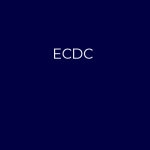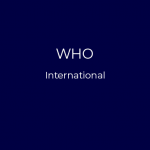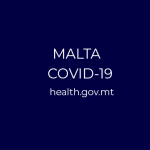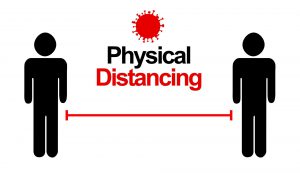MCAST COVID-19
Information Page
The health and safety of our community is our top priority. We know that many people are understandably concerned about the current pandemic situation. MCAST is taking increased health and safety measures to address these concerns while ensuring that learning can continue. As the situation continues to develop, please stay updated by visiting mcast.edu.mt/covid19 for the latest information. You can also visit the circulars section for all the official messages sent to staff and students.









- Communicable disease threats report, 14 - 20 February 2026, week 8by ECDC on February 20, 2026 at 3:46 pm
This issue of the ECDC Communicable Disease Threats Report (CDTR) covers the period 7 - 13 February 2026 and includes updates on respiratory virus epidemiology in the EU/EEA, mass gathering monitoring, avian influenza, and mpox.
- Weekly respiratory virus update, week 7, February 2026by ECDC on February 20, 2026 at 10:54 am
Respiratory virus activity remains elevated across the EU/EEA: influenza transmission is still widespread but decreasing, and RSV levels remain high, while SARS CoV 2 circulation remains low.
- Communicable disease threats report, 7 - 13 February 2026, week 7by ECDC on February 13, 2026 at 4:19 pm
This issue of the ECDC Communicable Disease Threats Report (CDTR) covers the period 7 - 13 February 2026 and includes updates on respiratory virus epidemiology in the EU/EEA, mass gathering monitoring, avian influenza, chikungunya, dengue, Nipah virus disease, and measles.
- Weekly respiratory virus update, week 6, January 2026by ECDC on February 13, 2026 at 1:51 pm
Respiratory virus circulation is elevated across the EU/EEA: the circulation of influenza viruses is still high and RSV circulation is elevated and increasing. SARS-CoV-2 circulation continues to be low.
- Communicable disease threats report, 31 January - 6 February 2026, week 6by ECDC on February 6, 2026 at 3:59 pm
This issue of the ECDC Communicable Disease Threats Report (CDTR) covers the period 31 January - 6 February 2026 and includes updates on respiratory virus epidemiology in the EU/EEA, SARS-CoV-2 variant classification, Bacillus cereus toxin in infant formula, mass gathering monitoring, mpox, nipah virus, and Middle East respiratory virus syndrome.
News (English) - World Health Organization Corporate news releases, statements, and notes for media issued by the World Health Organization.
- WHO validates elimination of trachoma as a public health problem in Libyaon February 18, 2026 at 2:24 pm
WHO today announced that Libya has eliminated trachoma as a public health problem, a landmark victory for public health in WHO’s Eastern Mediterranean Region. This hard-won achievement protects future generations from preventable blindness and provides a powerful reminder that countries can overcome neglected tropical diseases despite persisting challenges.
- Global commitment on display as countries negotiate key annex to the Pandemic Agreementon February 17, 2026 at 9:24 am
Member States of the World Health Organization (WHO) concluded a weeklong round of negotiations on draft annex for Pathogen Access and Benefit Sharing (PABS) – a key component of the WHO Pandemic Agreement. The fifth meeting of the Intergovernmental Working Group on the WHO Pandemic Agreement (IGWG) – set up by the World Health Assembly (WHA) last year to negotiate the PABS annex – wrapped up over the weekend after productive discussions from 9–14 February 2026.
- Statement on the planned hepatitis B birth dose vaccine trial in Guinea-Bissauon February 13, 2026 at 6:18 pm
WHO statement on a planned hepatitis B birth dose vaccine trial in Guinea-Bissau.
- One in two people facing cataract blindness need access to life-changing surgeryon February 10, 2026 at 11:30 pm
The World Health Organization (WHO) is urging countries to accelerate efforts to ensure that millions of people living with cataract can access simple, sight‑restoring surgery – one of the most effective and affordable interventions to prevent avoidable blindness.
- Over four million girls still at risk of female genital mutilation: UN leaders call for sustained commitment and investment to end FGMon February 5, 2026 at 1:51 pm
Joint statement by the UNFPA Executive Director, UNICEF Executive Director, UN High Commissioner for Human Rights, UN Women Executive Director, WHO Director-General, and UNESCO Director-General on the International Day of Zero Tolerance for Female Genital Mutilation In 2026 alone, an estimated 4.5 million girls – many under the age of five – are at risk of undergoing female genital mutilation (FGM). Currently, more than 230 million girls and women are living with its lifelong consequences.Today, on the International Day of Zero Tolerance for Female Genital Mutilation, we reaffirm our commitment to end female genital mutilation for every girl and every woman at risk, and to continue working to ensure those subjected to this harmful practice have access to quality and appropriate services.Female genital mutilation is a violation of human rights and cannot be justified on any grounds. It compromises girls’ and women’s physical and mental health and can lead to serious, lifelong complications, with treatment costs estimated at about US$ 1.4 billion every year.Interventions aimed at ending female genital mutilation over the last three decades are having an impact, with nearly two-thirds of the population in countries where it is prevalent expressing support for its elimination. After decades of slow change, progress against female genital mutilation is accelerating: half of all gains since 1990 were achieved in the past decade reducing the number of girls subjected to FGM from one in two to one in three. We need to build on this momentum and speed up progress to meet the Sustainable Development Goal target of ending female genital mutilation by 2030.We know what works. Health education, engaging religious and community leaders, parents and health workers and the use of traditional and social media are effective strategies to end the practice. We must invest in community-led movements – including grassroots and youth networks – and strengthen education through both formal and community-based approaches. We need to amplify prevention messages by involving trusted opinion leaders, including health workers. And we must support survivors by ensuring they have access to comprehensive, context-tailored health care, psychosocial support, and legal assistance.Every dollar invested in ending female genital mutilation yields a tenfold return. An investment of US$ 2.8 billion can prevent 20 million cases and generate US$ 28 billion in investment returns.As we approach 2030, gains achieved over decades are at risk as global investment and support wane. Funding cuts and declining international investment in health, education, and child protection programmes are already constraining efforts to prevent female genital mutilation and support survivors. Further, the growing systematic pushback on efforts to end female genital mutilation, compounded by dangerous arguments that it is acceptable when carried out by doctors or health workers, adds more hurdles to elimination efforts. Without adequate and predictable financing, community outreach programmes risk being scaled back, frontline services weakened, and progress reversed – placing millions more girls at risk at a critical moment in the push to meet the 2030 target.Today we reaffirm our commitment and efforts with local and global public and private partners, including survivors, to end female genital mutilation once and for all.








 MCAST Main Campus
MCAST Main Campus  +356 2398 7100
+356 2398 7100
 information@mcast.edu.mt
information@mcast.edu.mt